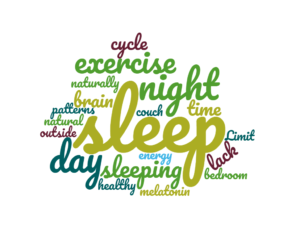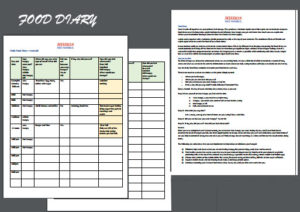
Sleep serves to re-energize the body’s cells, clear waste from the brain, and improve learning and memory. Most of the sleeping we do is characterized by large, slow brain waves, relaxed muscles and slow, deep breathing, which help the brain and body to recuperate after a long day.
Inadequate sleep causes a reduction in concentration and perception due to the brain not adequately benefiting from the restorative nature of sleep. An increasing number of us are chronically sleep deprived because of our modern lifestyles. If your sleep account is in deficit, it will affect your daytime energy, emotional balance, and your weight. Sleep plays a vital role in physical health, memory, emotional well-being and longevity. 8 hours of sleep is recommended for optimum health.
Lack of sleep influences your digestive system, immune system, vitality and your weight. It affects your “famine response” hormones, it increases ghrelin and decreases Leptin, affecting your appetite, you are tired and start to crave higher calorie foods. A further affect on your body caused by lack of sleep is an increase in cortisol – the stress hormone which activates the reward centers in your brain that make you want food – and not the healthy foods we should be eating. Lack of sleep leaves you hungrier, less satisfied after meals and with no energy to exercise.
The cure for sleep difficulties can often be found in your daily routine. Unhealthy choices during the day can result in restlessness at night. Try the following actions to help you achieve 8 hours sleep a night – including weekends.
Work towards a natural sleep and wake cycle.
- Get enough sunlight during the day to stimulate the production of melatonin . Melatonin is a naturally occurring hormone controlled by light exposure that helps regulate your sleep-wake cycle. Your brain secretes more melatonin when it’s dark—making you sleepy—and less when it’s light—making you more alert.
- Try to go to sleep and get up at the same time everyday. Choose a bedtime when you naturally feel tired.
- Avoid sleeping in on weekends if you need extra sleep at the weekend take a daytime nap but keep to the same wake up time. Limit naps to 15 to 20 mins in the early afternoon.
- Avoid sleeping after supper, if you feel drowsy get up off the couch and do some exercise or light household chores, do not sleep on the couch!
Preparing yourself for bedtime.
Make your bedroom a place for sleeping,
- Remove clutter, re-locate desks and work items, put clothing away, remove the TV, make the space condusive to sleep.
- Make your bedroom as dark as possible or use a sleep mask.
- Make sure its not too hot or too cold, adjust your bedding to ensure you are sleeping at a temperature that encourages sleep.
Change your habits:
- Cut out the late night coffee , avoid alcohol before bed, that nightcap that you think is helping you relax is affecting your sleep cycle- stimulants disrupt sleep patterns.
- Avoid bright screens an hour before bedtime – ipads, cell phones, TV. Listen to music or a podcast instead.
- Avoid eating large meals late at night
Some nights it is inevitable that we are not going to get enough sleep, the key is to make up for it on the following day and catch up on the lost sleep. If you are in a situation where you only get a few hours sleep a night consistently, start to make the changes that will give you the chance to get more hours of restorative sleep.
Homework:
Decide on a bedtime and wake-up time that works best for you.
Spend some time each day outdoors in the sunshine.
Replace caffeinated drinks after 5 pm with alternate non-caffeinated beverages.



